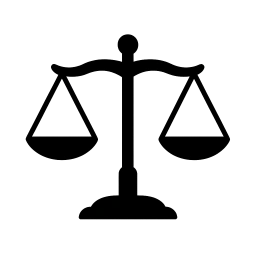The ethical considerations surrounding medical aid in dying are deeply nuanced, often balancing the sanctity of life with the equally important values of autonomy and compassion. For some, the idea of hastening death raises moral or spiritual concerns about the role of medicine and the potential for abuse. Yet for others, particularly those facing irreversible and painful decline, the option represents a final act of control, grounded in dignity and self-determination. Ethical frameworks increasingly emphasize patient-centered care—respecting the individual’s values, beliefs, and wishes at every stage of life, including its end. Robust safeguards, mental competency evaluations, and voluntary participation by physicians help address ethical objections, ensuring that this option is neither taken lightly nor applied broadly. In this context, medical aid in dying is not about choosing death over life—it is about allowing a person to choose how they meet death, with clarity, care, and compassion.
Sometimes, the simplest moments hold the deepest wisdom. Let your thoughts settle, and clarity will find you.
At the heart of the ethical debate around medical aid in dying lies a fundamental tension between preserving life and honoring individual autonomy. On one side, some argue that intentionally ending a life—regardless of suffering—violates the Hippocratic oath and could erode trust in the medical profession. Others worry that legalizing such a practice might place undue pressure on vulnerable patients, particularly the elderly, disabled, or economically disadvantaged, who may feel a duty to choose death rather than be a perceived burden. These concerns are valid and must be addressed through strict legal safeguards and transparency. However, an equally compelling ethical argument rests on the principle of relief from suffering and the right to self-determination. When a person is mentally competent, terminally ill, and enduring unrelievable pain or loss of dignity, forcing them to continue suffering against their will can itself be seen as ethically troubling. In modern medical ethics, the trend has shifted toward shared decision-making, recognizing that respecting a patient’s informed choices—even those that involve refusing life-sustaining treatment—is central to compassionate care. Medical aid in dying, under well-regulated conditions, can be viewed not as a threat to ethical standards, but as an extension of them—grounded in respect, humanity, and the moral imperative to do no harm, including the harm of prolonged and unwanted suffering.


As we reflect on the broader conversation in Oklahoma, it becomes clear that the push for medical aid in dying is not merely a legal or political matter—it is an ethical evolution grounded in respect for human dignity. Earlier, we explored how this movement centers on compassion and the right to choose one’s final moments; now, through deeper ethical reflection, we see that honoring these choices is not at odds with medical ethics but aligned with its most humane goals. While concerns about coercion and misuse are valid, the existence of stringent safeguards and rigorous oversight in other states offers a clear path forward—one that protects both autonomy and integrity. Rather than undermining the value of life, medical aid in dying can affirm it, by allowing individuals to face death on their own terms, with their values intact. In connecting these ideas, we come to understand that true compassion involves not only preserving life but empowering people to shape the end of it with meaning, peace, and dignity.
Wrapping Up with Key Insights
In considering medical aid in dying, Oklahoma stands at a crossroads of compassion, ethics, and personal freedom. The path forward involves not only legal reform but a cultural shift—one that embraces empathy, safeguards autonomy, and acknowledges that dignity at the end of life is just as important as care throughout it. Through careful regulation and ethical oversight, this deeply personal choice can be offered responsibly, without compromising the values we hold as a society. The conversation is no longer just about whether people should have this option—but whether we, as a community, are willing to listen to their voices, honor their pain, and respect their final wishes. Empowering terminally ill individuals to choose how they die is not a retreat from life—it’s an affirmation of the human spirit’s right to define its own final chapter.


Leave a Reply